I recently received from Netflix the triple feature of classic Russian silents: Dovzhenko's Earth, Pudovkin's The End of St. Petersburg, and the short, amusing comedy, Chess Fever, also helmed by Dovzhenko, starring the Russian matinee idol, Vladimir Fogel (who, like James Dean, died too early in life to attain the international superstardom he so obviously deserved). My conservative friends claim that as they so clearly espouse Marxist theory and the Bolshevik counter-revolution (the Pudovkin film, for example, shows the storming of the Winter Palace during the Kerensky regime), these old silent movies are somehow no longer "relevant." I disagree.
Many young people only know what the Russian Revolution was like through feature films of the era. Yes, it is shocking to see such obviously propagandistic cinema as Dovzhenko's account of the efforts to bring Bolshevism to simple Russian peasants, so used to the feudalism of the Romanofs, and even more pointed intercutting of resplendant dandies at the stock market with shots of grimey, fearsome steel mill workers who've just been told that their hours would go up with less pay. It is not too difficult to imagine a young Berthold Brecht taking in such films in the cinemas of these Russian filmmakers; we know, for example, that Eisenstein was an influence on his playwrighting, and he revered one of Eisenstein's teachers, Vsevelod Meyerhold. It is common to see clips from Pudovkin's recreation of the dawn of the Revolution as well as Eisenstein's even-more-commonly-ripped October (a.k.a. Ten Days That Shook the World, after John Reed's book of the same title.
Conservatives point to the fall of the Soviet Union, symbolized by the destruction of the Berlin Wall, as an object lesson in proof of their carp that Marxism, communism, and socialism "don't work" and that all art created with such sensibilities are now somehow worthless. To paraphrase G. K. Chesterton (speaking of Christianity), it might be observed that there's nothing wrong with Marxism, it's just never been tried. The naivete of filmmakers like Dovzhenko and Pudovkin can be excused: they had no way of knowing that the Bolshevik Revolution would be usurped by totalitarian dictatorship and it is illogical to conclude that any Marxist-Leninist inspired revolution could only result in Stalinist tyranny.
More progressive thinkers like Chomsky believe that even domocracies are perpetuated by propaganda designed to create apathy toward what the central government is up to and a kind of rule by acquiescence. When, as a Texas Christian University student, I screened for the campus film series Leni Riefenstahl's Triumph of the Will, it had only just declassified from the foreign property bureaucracy in D.C. since anyone watching it was thought an immediate convert to Nazis, and screening it was verboten. As chilling a portrait of mob-mesmerizing fascist propaganda ever devised, Riefenstahl's masterpiece remains in the eyes of film historians and critics a top-of-the-shelf example of the genre. You can see its lasting effects today; just turn on your TV. The same can be said of Eisenstein's work: think of the head of Kerensky as he rises higher and higher, juxtaposed with a leafy crown held by a statue above the provisional leader.
A few minutes into Triumph of the Will at that campus screening, an English teacher of my acquaintance walked back to the screening platform (we were using old "arch-lamp" 16mm projectors) and, with a harumph!, blurted:
"That's perverted art," and promptly turned and left.
This is a curious oxymoron: perverted art. A contradiction in terms. No art can be perverted. Art is in the eyes of the beholder. Even Tiresias knew art when he saw it, and he was blind, but he must have known that one woman's art is another man's propaganda. To paraphrase Hamlet, nothing's art or not but thinking makes it so. If one strips away any hint of Marxism in either The Three Penny Opera or The Rise and Fall of the City of Mahagonny, each is nevertheless a delightful evening of song and spectacle (assuming they're done properly -- another entirely subjective determination). We delight at Peachum's hypocrisy in delighting at the hypocrisy of mankind. We want Alaska Wolf Joe to survive with sanity intact and moral sense of justice unblemished in the face of the materialistic assults available to all men from Alaska to Pensacola via Mahagonny.
Since I believe profoundly that Marxist-socialist art still has a place in the scheme of things (perhaps now more than ever, with the neocons on the run), and since I can enjoy Brecht and Weill (or Brecht alone, though he's so rarely performed) for their own sake, I can dismiss ideological intrusions when they infrequently appear. Brecht's "epic theatre" has room for such blatant displays of partisanship in any case; we're not exactly talking about product plugs in Hollywood movies, after all.
Besides, a work like Earth in enjoyable on sociological, historical, and ethnographical levels, being a portrait of a disappearing race of people who toil the earth in places like the Ukraine. It has almost an Oscar Lewis quality about it, though the only point of contact with the City is by tractor, symbol of the new replacing the old. And, as if that symbolism wasn't enough, Dovzhenko also devotes a crucial sequence to an elderly peasant's dying only to be approached by a relative who says, "When you get to the other side, call to me and say which place you are in."
(Sure enough, after the old guy passes, the younger man leans close to the mound of dirt and whispers, "Where are you? Where are you?" That is the kind of thing a screen writer can't make up: it's like Ford's The Grapes of Wrath. It has...AUTHENTICITY.
Add to that Dovzhenko's contageous zeal for which he regards the new medium; after all, cinema was quite young when Earth was made. Shots of sunflower blossoms bigger than pizza pies are intercut with the faces of village women in austere dress, an empowering of the women by establishing their authority over Nature. Kino's new prints do the old celluloid justice, attaining as they do to a chiaroscurist effect of stark contrasted blacks and whites as the filmmaker no doubt intended. The predicate laid for the arrival of the village's first tractor consists of scenes showing the people harvesting, the scythes soon to become whirling blades; the work horses, a fossil fuel engine and tires. But there is an almost nostalgic glance at the quaint village life even as bureaucratic modernization rolls in to wipe the past away.
Pudovkin ((to come))
Saturday, March 21, 2009
Subscribe to:
Post Comments (Atom)
+(2).jpg)
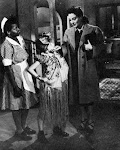.jpg)
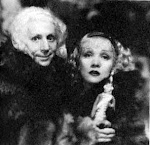+(3).jpg)
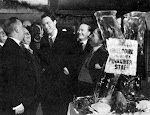+(4).jpg)
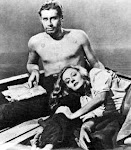+(7).jpg)
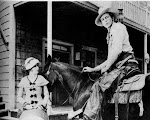.jpg)
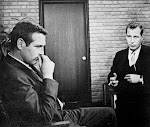+(6).jpg)
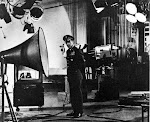+(5).jpg)
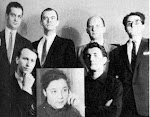.jpg)

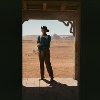




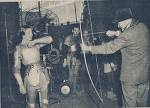
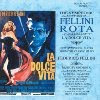

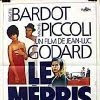

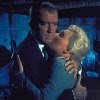
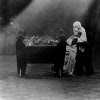
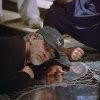





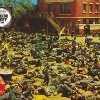

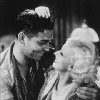


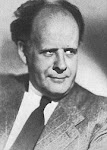

















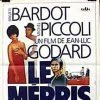


No comments:
Post a Comment